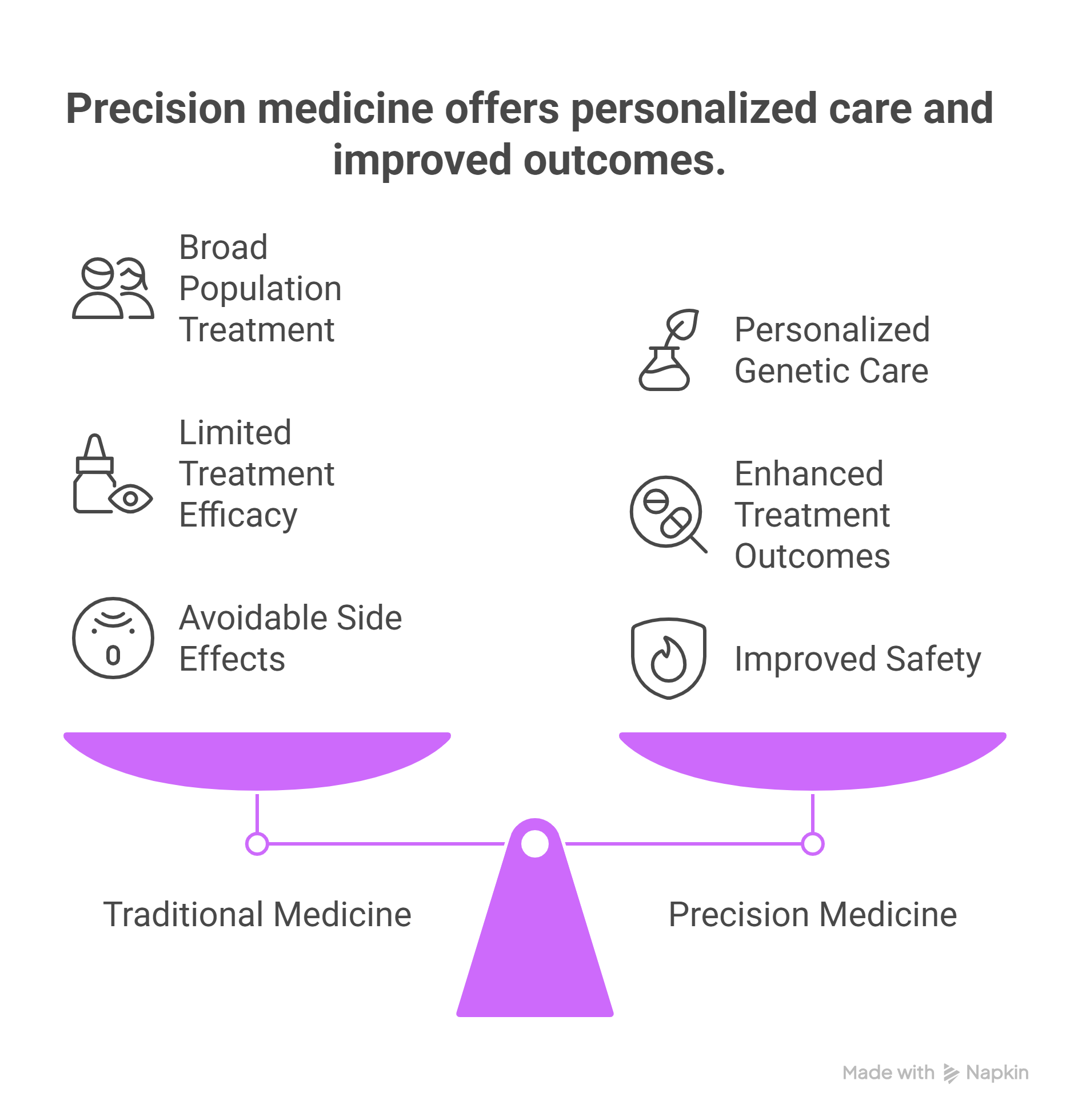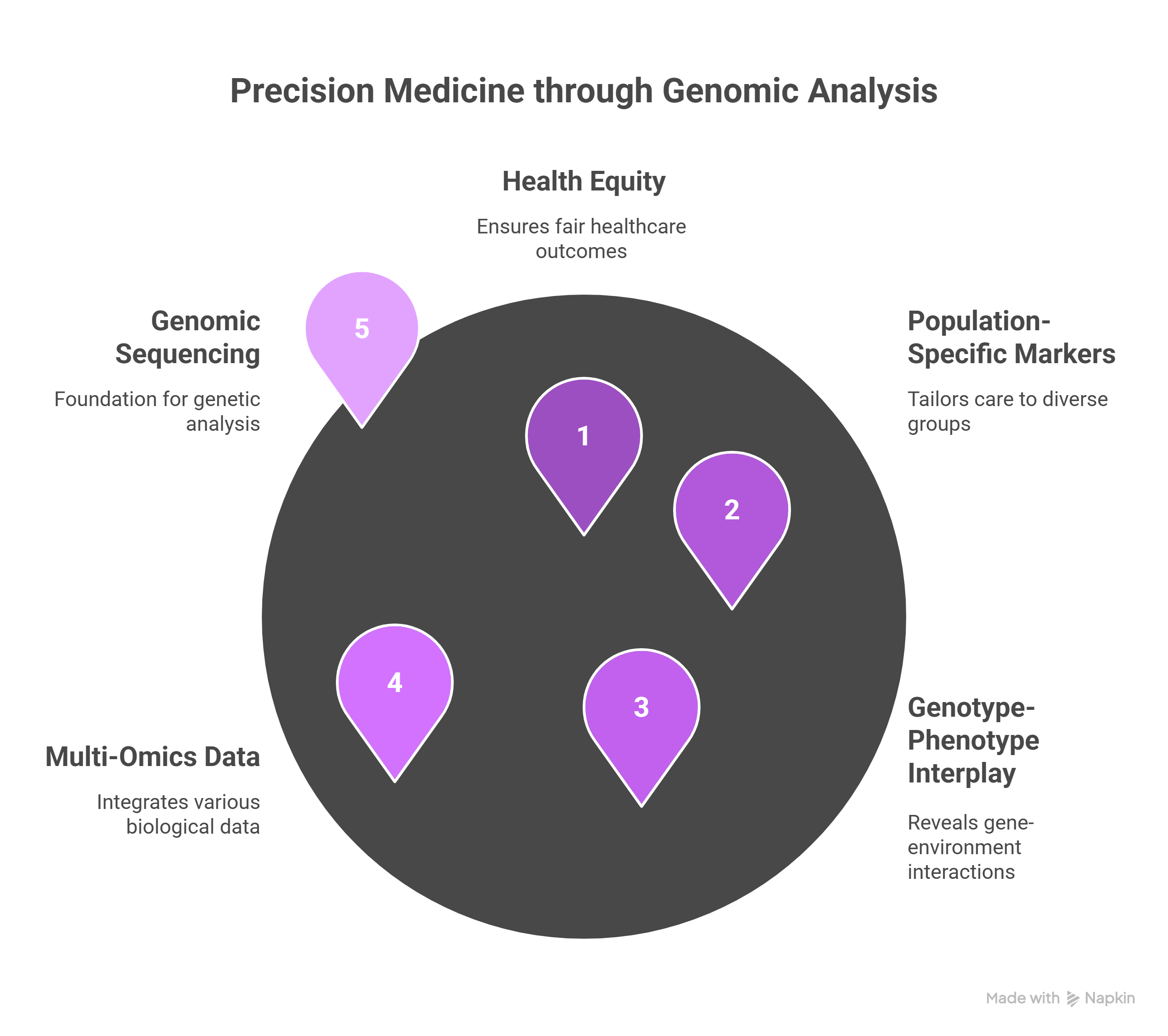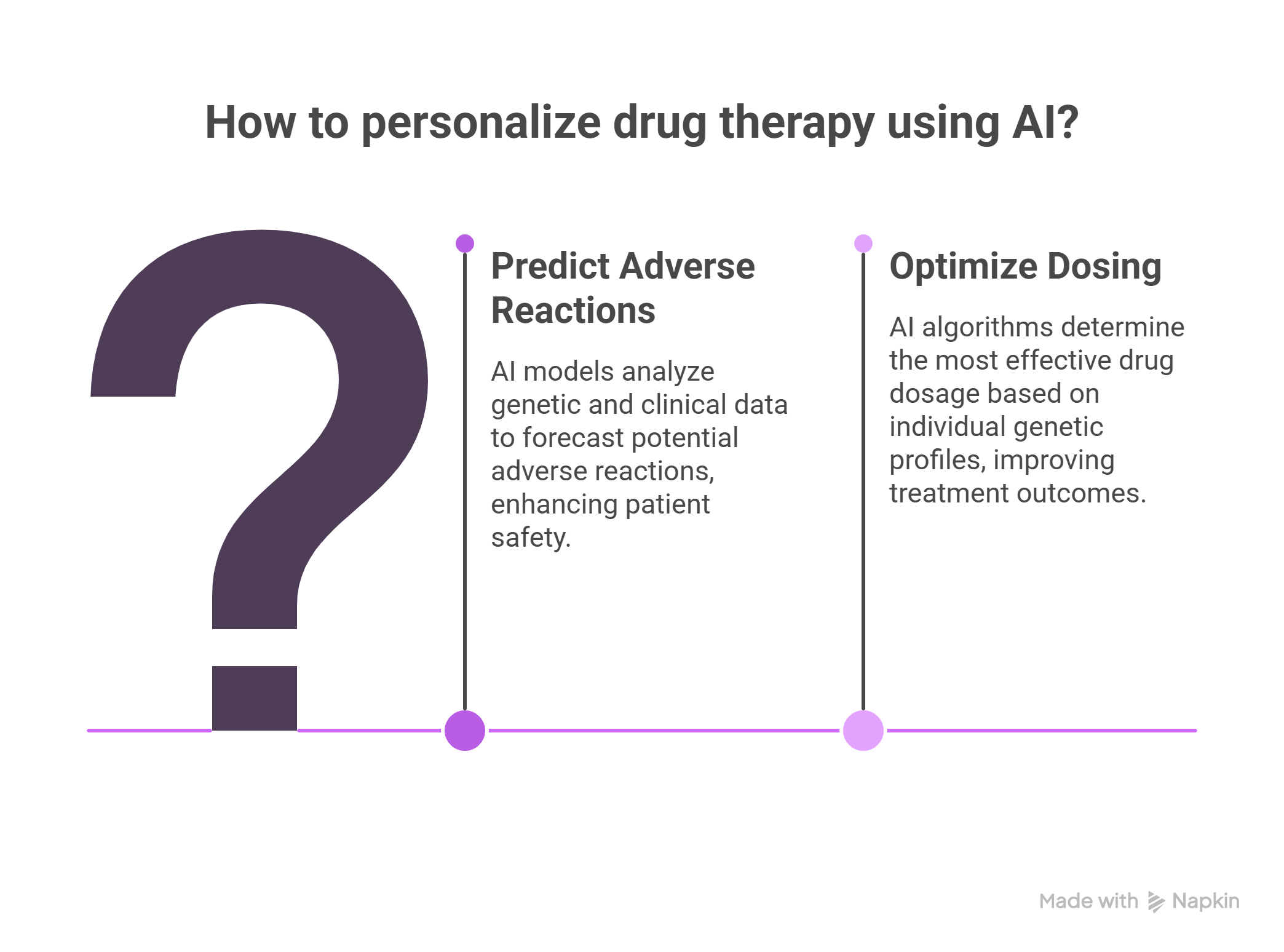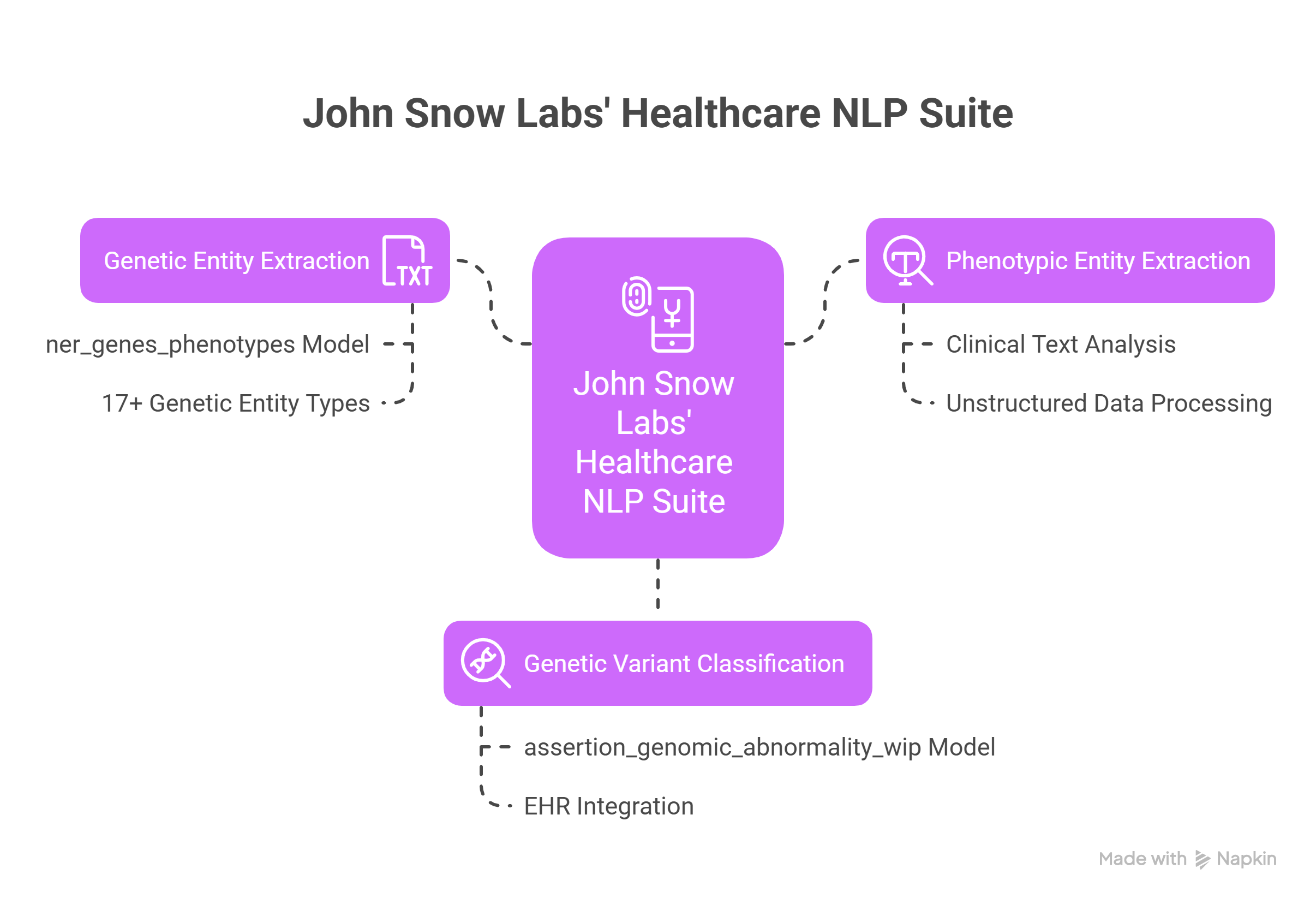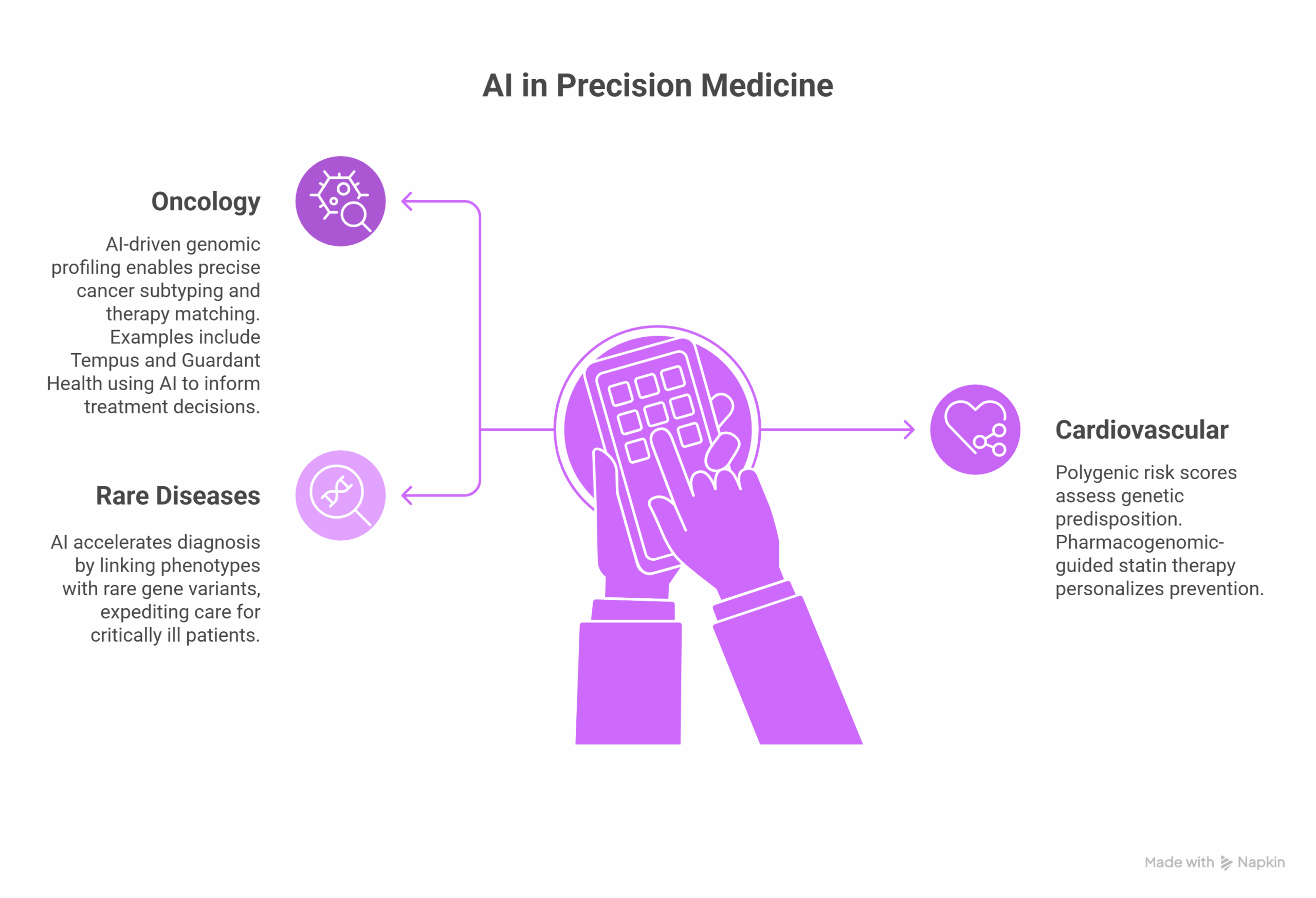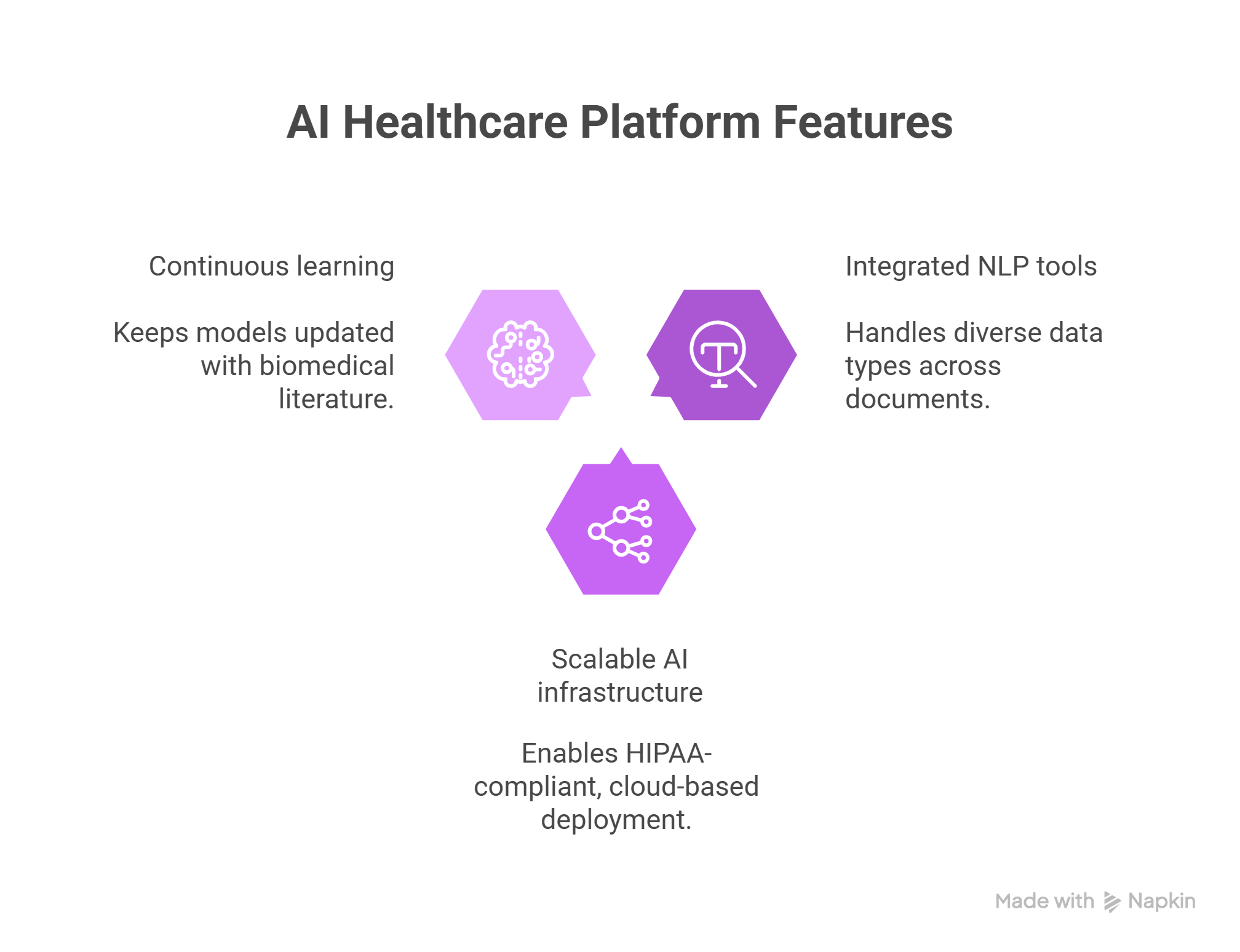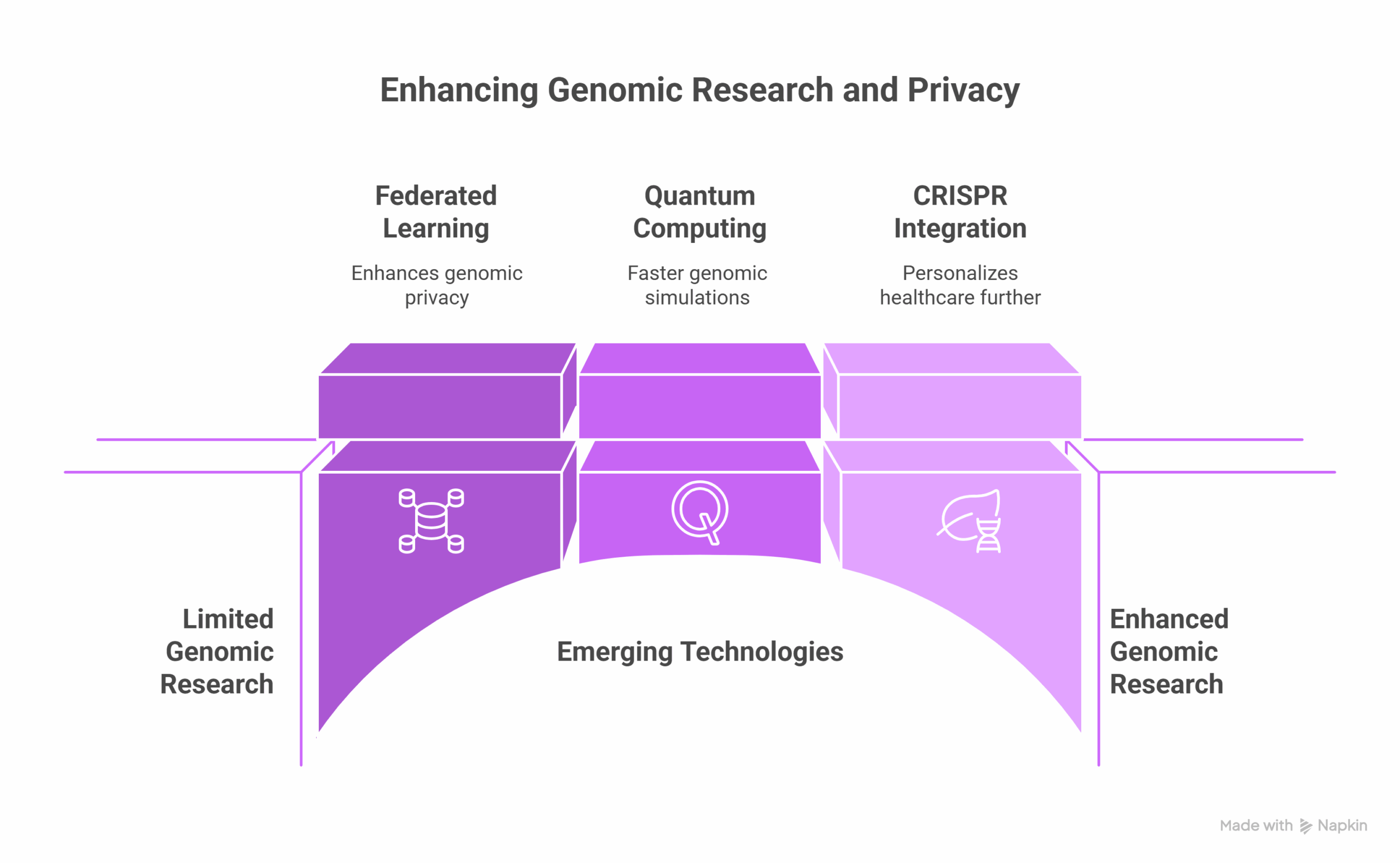How is AI transforming the shift from one-size-fits-all to precision medicine?
Traditional medicine treats populations broadly, often overlooking how individual genetics influence treatment response. This approach limits efficacy and contributes to avoidable side effects. Precision medicine, by contrast, uses genetic profiles to personalize care, enhancing outcomes and safety. With over 140,000 genetic-based tests now available for clinical management1, the field is rapidly advancing.
Artificial intelligence (AI) acts as a catalyst for this evolution. The human genome consists of 3 billion base pairs, a scale of data unmanageable without advanced tools. AI enables the analysis of this vast information, turning raw genetic data into actionable clinical insights.
What are the core technologies behind AI-powered precision medicine?
What role does genetic data play in treatment personalization?
Genomic sequencing technologies like Next-Generation Sequencing (NGS) allow researchers to analyze entire genomes quickly and cost-effectively. This is foundational for integrating multi-omics data (genomics, proteomics, metabolomics) that provide a holistic view of individual biology. Genetic variations influence drug metabolism, disease risk, and treatment response.
The interplay between genotype and phenotype reveals how genes and the environment jointly shape health. Understanding population-specific genetic markers helps address healthcare disparities and enhances care equity.
Which AI techniques are powering advancements in this field?
Machine learning, particularly deep learning and neural networks, excels at detecting patterns in complex datasets like genomic profiles. These models support:
- Biomarker discovery
- Disease risk prediction
- Treatment outcome forecasting
Advanced techniques like generative AI interpret pharmacogenomic data, while explainable AI (XAI) provides transparency essential for clinical adoption. Multi-modal data fusion further enhances model robustness by integrating diverse inputs.
How does AI enhance pharmacogenomics and drug therapy?
What are drug-gene interactions, and how do they affect treatment?
Pharmacogenomics studies how genes impact drug response. Variants in enzymes that metabolize drugs, or in drug targets like receptors, can significantly alter efficacy and safety. A well-known example is how CYP450 enzyme polymorphisms affect the metabolism of common medications.
AI predicts adverse reactions and optimal dosing by analyzing genetic and clinical variables. These models help clinicians personalize therapies and reduce trial-and-error prescribing.
What are some clinical applications of AI in pharmacogenomics?
Cancer: AI helps match patients to targeted therapies based on tumor genomics. HER2 expression, for example, guides breast cancer treatment. AI streamlines this selection process.
Psychiatry: Genetic testing supports antidepressant selection. AI reduces the guesswork, improving time to therapeutic effect and minimizing side effects.
What is John Snow Labs’ contribution to AI-driven precision medicine?
How does NLP support genomic research?
John Snow Labs’ healthcare NLP suite extracts genetic and phenotypic entities from unstructured clinical text. The ner_genes_phenotypes model identifies over 17 genetic entity types. Models like assertion_genomic_abnormality_wip classify genetic variants, facilitating integration with electronic health records (EHRs).
How do medical large language models improve genomic decision-making?
Medical LLMs enable real-time synthesis of genomic literature, streamline clinical trial findings, and support treatment planning. They also offer researchers conversational access to curated genomic insights.
How does WiseCube enhance drug discovery?
WiseCube is a biomedical knowledge platform that maps relationships between genes, drugs, and diseases. It accelerates discovery through literature-based AI and scalable knowledge graphs.
How is AI accelerating biomarker discovery?
Traditional biomarker identification relies on hypothesis-driven research, which can be narrow in scope. AI explores high-dimensional data to detect novel biomarker signatures across multi-omics layers.
In clinical use:
- AI enhances diagnostic precision, especially in cancer
- Predictive biomarkers support treatment adjustments in real time
- Circulating tumor DNA (liquid biopsy) aids in disease monitoring
Where is precision medicine being applied today?
Oncology: AI-driven genomic profiling enables precise cancer subtyping and therapy matching. Examples include Tempus and Guardant Health using AI to inform treatment decisions.
Cardiovascular: Polygenic risk scores assess genetic predisposition. Pharmacogenomic-guided statin therapy personalizes prevention.
Rare Diseases: AI accelerates diagnosis by linking phenotypes with rare gene variants, expediting care for critically ill patients.
How is AI reshaping drug discovery and development?
AI mines genomic datasets to identify and validate new drug targets. In clinical trials, AI stratifies participants using genetic biomarkers, boosting trial success rates. For existing drugs, AI uncovers novel therapeutic applications, speeding up drug repurposing.
What challenges must be addressed for widespread adoption?
Technical hurdles: Data standardization, interoperability, and real-time processing require robust infrastructure. AI models must be validated for clinical reliability and transparency.
Ethical issues: Genomic privacy, informed consent, and equitable access remain critical. Ensuring diverse datasets is vital to avoid biases.
How does John Snow Labs support real-world implementation?
- Integrated NLP tools handle diverse data types across clinical documents, genomics, and research literature.
- Scalable AI infrastructure enables HIPAA-compliant, cloud-based deployment.
- Continuous learning via knowledge graphs keeps models updated with biomedical literature.
What’s next for precision medicine with AI?
Emerging technologies like federated learning will enhance genomic privacy while enabling collaborative research. Quantum computing promises faster genomic simulations. Integration with CRISPR and digital health tools will further personalize care.
FAQs
What is precision medicine?
Precision medicine tailors treatment to an individual’s genetic, environmental, and lifestyle factors.
How does AI improve genetic testing?
AI accelerates interpretation of genomic data, identifying clinically relevant variants faster.
Can AI predict drug side effects?
Yes, AI models assess risk based on genetic and clinical profiles, helping avoid adverse reactions.
What diseases benefit most from AI-driven precision medicine?
Cancer, cardiovascular conditions, psychiatric disorders, and rare diseases are leading areas.
Is John Snow Labs’ software HIPAA-compliant?
Yes, John Snow Labs offers HIPAA-compliant AI tools tailored for healthcare environments.























